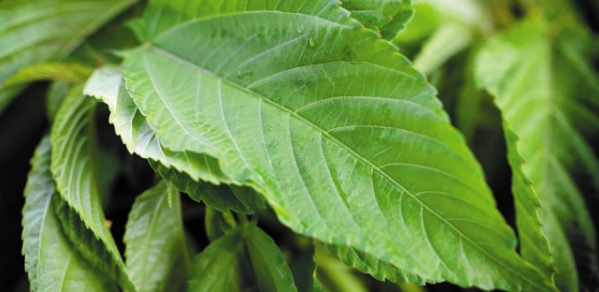Used mostly as part of the winter dishes of saag, it is the less favourite relative of spinach. But Amaranth leaves are much superior to most greens because they are a powerhouse of nutrients. Let us look at some health benefits of eating Amaranth leaves.
Storehouse of nutrients
Amaranth leaves are a storehouse of essential phytonutrients and antioxidants which help to reduce inflammation in the body and provide an extra boost of nutrition to one’s health.
Low in calories
100gms of Amaranth leaves carry only unbelievably light baggage of just 23 calories. Traces of fat and absolutely no cholesterol make them a healthy go-to food option, especially those who are watching their weight or who want to reduce it.
Good for anemics
Iron is needed for producing red blood cells and is also needed for cellular metabolism. Reap maximum benefits of this powerful punch of iron that amaranth leaves provide by adding some source of vitamin C as it facilitates maximum absorption of iron in the blood. So, you could add a dash of lemon or have the amaranth leaves dish with a glass of orange juice.
Boosts immunity
Here is another reason why you should make amaranth leaves a regular part of your diet. These leafy greens are rich in vitamin C. having 100gms of the leaves will meet 70% of your daily requirement for vitamin C. This vitamin is a water-soluble vitamin and is needed for fighting off infections and for quicker wound healing. It also helps to reduce the effect of free radicals in the environment which are responsible for ageing and many types of cancer.
Rich In vitamin A
Amaranth leaves are rich in vitamin A and a cup can meet 97% of your daily need for this antioxidative vitamin. They are also full of flavonoid polyphenolic antioxidants like beta-carotene, zeaxanthin and lutein which provide a protective layer against oxidative stress caused by free radicals. Vitamin A is also needed for healthy skin and proper vision.
Rich In vitamin K
Amongst all the green leafy vegetables, across the board amaranth leaves have the highest quantity of vitamin K. This vitamin is needed for good bone health and also plays an important role in blood clotting. It promotes osteoblastic activity and strengthens bone mass. Also, it is beneficial for those who suffer from Alzheimer’s disease as it controls the neural damage done in the brain.
Rich In vitamin B
Amaranth leaves are replete with vitamins of the B group. Folates, riboflavin, niacin, thiamin, vitamin B6 and others are all found in these leafy greens. They help prevent birth defects in newborn babies and are needed for optimal mental and physical health.
Rich In potassium
The leaves of this wonder plant are full of potassium. The element is needed for good cardiac health. Potassium is necessary for creating a balanced cellular fluid environment. It also controls the heart rate in the human body.
Advertisement
Amaranth is gluten-free
The seeds of the amaranth plant are used as a grain and can be ground to be made into flour. This is a protein-rich flour that is entirely gluten-free, so it is incredibly beneficial for those who have gluten intolerance.
Rich In protein
Amaranth leaves and grain are rich in protein, leaving behind even oats as a protein-rich grain. Receiving protein from a plant source is considered much healthier than obtaining it from an animal source as the former has no or very little fat and cholesterol. Eating amaranth leaves suppresses appetite as they are rich in protein. Having a protein-rich diet leads to suppression of hunger as it reduces insulin levels in the blood and keeps one feeling satiated.
Amaranth leaves have Lysine
Amaranth leaves have lysine, an essential amino acid that is needed for energy production and absorption of calcium. It also promotes hair growth and good skin. Those who suffer from hair loss or greying will benefit significantly from eating amaranth leaves.
Source: pharmeasy.in/blog









